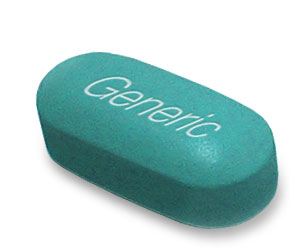FDA Planning Big Changes to Generic Warning Labels
July 9th, 2013 // 12:39 pm @ jmpickett
Latest FDA and cGMP Compliance News
With the fast track approval system that Congress set up for generic drugs, people who are hurt by a big name drug can be compensated from the drug company, if they can prove that the drug was dangerous and the label did not have a proper warning. But people who are injured by a generic drug cannot hold that manufacturer responsible if the drugmaker used the exact same active ingredients and put the same warning on their drug as the brand name drug did.
How to Write FDA Compliant SOPs
Now, FDA is thinking about making changes to labeling rules that could give generic drug companies more protections. FDA is said to be working on a new rule that would revise the procedures for making label changes to drugs that have been approved, no matter if they are bran name, generic or biologic in nature. The change would allow or require drug companies to make public potential changes to drug label warnings while FDA was still considering them. It also would make it very clear that the brand name drug and the generic would both have to update their warning label, if FDA did act on a proposed label change for either the brand name or generic version of the drug.
FDA is expected to come out with its new rule in September 2013.
The big issue here is what is known as the ‘changes being effected’ supplement. When a drug company learns of adverse events with their products or have doubts about their warning labels, they have to tell FDA, or a 483 or warning letter can result. Companies that make brand name drugs can get approval for any new warnings and can alert consumers about the developments via the ‘changes being effected’ supplement before FDA takes action.
Generic companies can’t do this, even though they have to tell the agency about any new information that would cause them to need to make a label change. They need to wait for FDA to decide if the warning label for the drug needs to be changed. If the big name version of the drug is no longer being sold, FDA has some latitude to work with the generic company to update their warning label.
A notice filed this week by FDA noted that the new FDA rules would provide parity between generic and brand name drug companies, regarding the submission of label changes. This suggests that generic companies will be able to make unilateral alterations to their warnings, too.
This new rule could reopen a door to lawsuits. One example is Karen Bartlett, who was seriously disfigured and almost blinded by an AER with a generic drug, an anti inflammatory. The US Supreme Court overruled a jury’s decision in NH to give Bartlett $21 million. It stated that if the drug company complied with all federal laws to use the same formulation and label as the brand name drug, it could not be found liable under NH law for selling a dangerous drug. One justice stated that the state law put the generic drug company in a catch 22; the only way to not be held liable for drugs that were shown to be dangerous would be to change a warning label that federal law states they cannot change.
The new FDA approach could allow generic companies to provide supplemental warnings about new risks, before FDA formally approves a label change. This also could invite attorneys for the injured to argue that generic drugs were dangerous to an unreasonable degree, if they could have had an extra warning but in the end did not.



